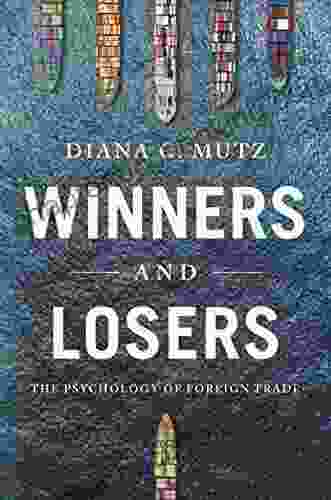In the intricate realm of international relations, the study of foreign trade has long captivated scholars and policymakers alike. However, it is not until recently that researchers have begun to delve into the psychological underpinnings of this multifaceted phenomenon. "The Psychology of Foreign Trade," a seminal work by Princeton University, offers a groundbreaking exploration of the psychological factors that influence the behaviors, decisions, and interactions of individuals and nations engaged in global trade.
Psychological Perspectives on Foreign Trade
The book presents a comprehensive framework for understanding the psychology of foreign trade, drawing upon insights from various disciplines including psychology, economics, and political science. It argues that psychological factors play a pivotal role in shaping trade policies, negotiating strategies, and the overall dynamics of international trade. These factors include:
- Cognitive biases: Individuals and nations often exhibit cognitive biases that influence their perceptions and decision-making processes in foreign trade. For example, they may overestimate the benefits of exports and underestimate the costs of imports.
- Emotional factors: Emotions such as fear, greed, and patriotism can significantly impact trade behavior. For instance, fear of foreign competition may lead to protectionist policies, while patriotism may motivate nations to pursue trade agreements with allies.
- Social identity: Individuals and nations often define themselves in terms of their economic interests, which can shape their attitudes towards foreign trade. For example, a nation with a strong manufacturing sector may view imports as a threat to its economic well-being.
- Cultural factors: Cultural values and beliefs can influence perceptions of foreign trade and the willingness to engage in it. For example, nations with collectivist cultures may be more likely to emphasize cooperation in trade, while nations with individualistic cultures may prioritize self-interest.
Case Studies and Empirical Research
The book supports its theoretical framework with a wealth of case studies and empirical research. It examines historical examples of trade policies and negotiations, analyzing the psychological factors that influenced the decision-making processes of key actors. The authors also present original research findings from surveys and experiments, providing quantitative evidence for the impact of psychological factors on foreign trade behavior.
One particularly striking finding is that individuals and nations tend to be more risk-averse in the context of foreign trade than in domestic markets. This risk aversion is often attributed to the perceived uncertainty and complexity of international trade transactions. The book also highlights the role of trust and reputation in facilitating trade between nations.
Policy Implications
The insights gained from "The Psychology of Foreign Trade" have profound implications for policymakers and trade practitioners. By understanding the psychological factors that influence trade behavior, policymakers can design more effective policies that promote mutually beneficial trade outcomes. For example, they can address cognitive biases through education and transparency, and mitigate emotional factors by fostering dialogue and cooperation.
Trade practitioners can also benefit from a deeper understanding of the psychology of foreign trade. By recognizing the psychological motivations and biases of their counterparts, they can develop more effective negotiating strategies and build stronger long-term relationships.
"The Psychology of Foreign Trade" is an indispensable resource for anyone seeking to understand the intricate psychological dynamics that shape global trade. It provides a comprehensive framework for analyzing the psychological factors that influence trade policies, negotiating strategies, and the overall dynamics of international trade. By blending theoretical insights, case studies, and empirical research, the book offers a unique and valuable perspective on this critical aspect of international relations.
For scholars, policymakers, trade practitioners, and anyone interested in the psychology of human behavior, "The Psychology of Foreign Trade" is a must-read. It is a seminal work that will undoubtedly continue to inspire research and inform policymaking for years to come.


























































































